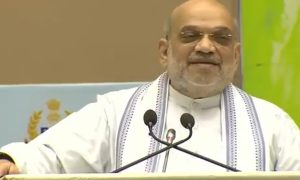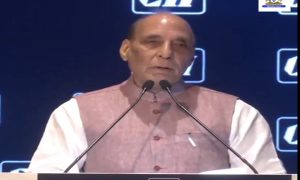In a major move, mainly benefiting IT professionals from India, the US House of Representatives introduced bipartisan legislation recommending the lifting of a per-country cap on employment-based ‘Green Card’. The bill phases out the 7% per-country limit on employment-based immigrant visas.
Understanding EAGLE Act 2021:
US Representatives Zoe Lofgren and John Curtis on June 2 introduced, the Equal Access to Green Cards for Legal Employment Act or EAGLE Act of 2021, a bill that will benefit the US Economy by allowing American employers to focus on hiring immigrants based on their merits, not their birthplace. The bill also raises the 7% per-country limit on family-sponsored visas to 15%.
The bill includes a longer nine-year transition period to ensure that no country is excluded from receiving visas while the per-country caps are phased out.
Similar to EAGLE Act, on July 10, 2019, the U.S. House of Representatives passed the Fairness for High Skilled Immigration Act (H.R. 1044), in the 116th Congress with a resounding Bipartisan vote of 365 to 65. A modified version of the Fairness for High Skilled Immigration Act (S. 386) was passed by unanimous consent in the Senate on December 2, 2020.
How is it beneficial for Indian job-seekers:
Green Card, officially known as a Permanent Resident Card, allows a person to live and work permanently in the United States.
With the current 7% per-country cap on the allotment of the immigration visa, a large number of Indian professionals working in the U.S. primarily on H-1B visas, have to wait for a long period to obtain the “Green Card”.
The introduction of the bipartisan EAGLE Act will be advantageous for Indian job-seekers who currently rely on temporary visas to attain the Green Card as it phases out the 7% per-country limit.
Representative John Curtis in support of the bill said, “The bipartisan EAGLE Act will create a more fair employment-based visa system by eliminating per-country limitations and creating a first-come, first-served system focused on merit instead of the country of origin.”
The new, phased-in system, established in the bipartisan EAGLE Act, would help ease the backlog for those who wait the longest.
Earlier, according to the report published in the American libertarian think tank, CATO, in March 2020, that 75 percent of the backlog for employment‐based visas was made up of Indians. The basic framework for the issuance of immigrant visas was last updated in 1990.
AILA’s Position on the Elimination of Per-Country Limitations
However, the American Immigration Lawyer Association cleared its stand on the recent bipartisan act. The Association said the EAGLE Act does not strike the right balance of eliminating per-country limitations without adversely impacting others. Therefore, AILA does not support its passage and urges Congress to find an equitable solution for all individuals waiting for lawful permanent residence.
The Equal Access to green Card for Legal Employment Act, 2021 needs to be passed by the House of Representatives and the Senate before it can be sent to the White House for the president to sign it into law.






















 WhatsApp us
WhatsApp us